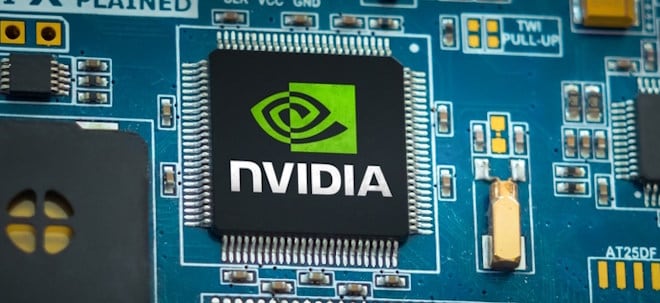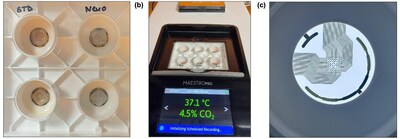World's First Computer-connected Lab Grown Human Bioprinted Skin: CTISKIN™ by CTIBIOTECH™ Sweeps Awards at IFSCC 2025 Congress with Groundbreaking Bioprinted Skin Technology
CTIBIOTECH™, a leading innovator in advanced human tissue engineering, proudly announces its dual triumph at the prestigious International Federation of Societies of Cosmetic Chemists
IFSCC 2025 Congress held in Cannes, France.
LYON, France, Sept. 23, 2025 /PRNewswire/ -- The company was recognized with two esteemed awards for its revolutionary presentation titled: "World's first computer-connected lab grown human bioprinted skin with a sensory nervous system for instantaneous cosmetics and fragrance testing."
Out of a remarkable 1,200 abstracts submitted from around the globe, CTIBIOTECH's pioneering work was selected to receive:
- Top 10 Posters Award recognition by IFSCC.
- Young Researcher Award by the French Society of Cosmetology (SFC) to Alizé VIALLE, Project Manager at CTIBIOTECH.
This groundbreaking research introduces a paradigm shift in cosmetic and fragrance testing. For the first time, a lab-grown, bioprinted human skin model, complete with a functional sensory nervous system, can be directly connected to a computer for instantaneous and highly accurate product evaluations.This advancement is part of New approach methodologies (NAMs) and promises to significantly reduce the reliance on animal testing, enhance the speed and efficacy of product development, and provide unprecedented insights into how skin interacts with various formulations.
Professor Colin McGUCKIN, President and CSO of CTIBIOTECH, expressed his immense pride in the team's achievement: "We are absolutely thrilled and honored to receive these prestigious awards from the IFSCC and SFC. This recognition is a testament to the dedication, innovation, and scientific rigor of our entire team represented by Alizé VIALLE. Our computer-connected bioprinted skin represents a monumental leap forward, offering a more ethical, efficient, and predictive platform for the cosmetics industry. We believe this technology will not only accelerate the development of safer and more effective products but also inspire a new generation of scientific inquiry into human biology."
Dr. Nico FORRAZ, CEO of CTIBIOTECH, highlighted the broader implications of this innovation: "These awards underscore CTIBIOTECH's commitment to pushing the boundaries of what's possible in biotechnology. It means faster time to market for novel products, reduced development costs, and ultimately, better and safer products for consumers worldwide. This is not just a scientific victory; it's a victory for ethical research and advanced product innovation."
Alizé VIALLE, Project Manager at CTIBIOTECH and recipient of the Young Researcher Award, shared her excitement: "Winning the Young Researcher Award is an incredible honor and a truly humbling experience. I would like to thank Richard LEROUX, President and Stéphane Poigny, Vice President for Science and Technics of the French Society of Cosmetology and the jury for this award."
The IFSCC Congress is yearly event that brings together leading cosmetic scientists and researchers from around the globe to share cutting-edge advancements and foster international collaboration.
About CTIBIOTECH: CTIBIOTECH is a biotechnology company specializing in the development of advanced human tissue models for research, drug discovery, and cosmetics testing. Utilizing state-of-the-art bioprinting and tissue engineering techniques, CTIBIOTECH creates highly realistic and functional human tissue models that offer superior predictive power and ethical alternatives to traditional testing methods. Website: https://ctibiotech.com
CTIBIOTECH Contact Information
For more information, please contact:
Dr Nico FORRAZ
Chief Executive Officer
CTIBIOTECH™
401547@email4pr.com
Phone Number: +33 6 78 90 38 50
www.ctibiotech.com
The innovation: World's first 3DBioprinted human skin with nervous system connected to a computer chip.
CTISKIN™ human skin 3Dioprinting: building on 10 years of R&D by CTIBIOTECH™
3D bioprinting is a biofabrication method enabling the industrialization of human tissue bioassay production, a faster, more precise and highly automated process to print human tissues in 3 dimensions, CTIBIOTECH uses bio-plotting or bio-extrusion techniques, which consist in extruding a bio-ink (a mixture of human skin cells suspended in a biocompatible gel) using pneumatic or mechanical bio-extrusion printers.
This research findings presented at IFSCC Congress 2025 demonstrate a significant breakthrough: the creation of the world's first computer-connected, lab-grown, bioprinted human skin with a functional sensory nervous system. This innovation has profound importance and will have a transformative impact on both biomedical and cosmetics research:
Importance of the Work:
Impact on Biomedical Research:
Impact on Cosmetics Research:
In essence, this work represents a leap towards truly predictive in vitro human models, offering a powerful, ethical, and efficient tool that will accelerate innovation and enhance safety across the biomedical and cosmetics industries.
CTIBIOTECH's ambition is to reduce both the cost and time of drug development through innovation in the automation of the cell-based bioassay development and production process.
Note to Editors: High-resolution images and interviews with CTIBIOTECH™ executives are available upon request
![]() View original content to download multimedia:https://www.prnewswire.com/news-releases/worlds-first-computer-connected-lab-grown-human-bioprinted-skin-ctiskin-by-ctibiotech-sweeps-awards-at-ifscc-2025-congress-with-groundbreaking-bioprinted-skin-technology-302563916.html
View original content to download multimedia:https://www.prnewswire.com/news-releases/worlds-first-computer-connected-lab-grown-human-bioprinted-skin-ctiskin-by-ctibiotech-sweeps-awards-at-ifscc-2025-congress-with-groundbreaking-bioprinted-skin-technology-302563916.html
SOURCE CTIBIOTECH



